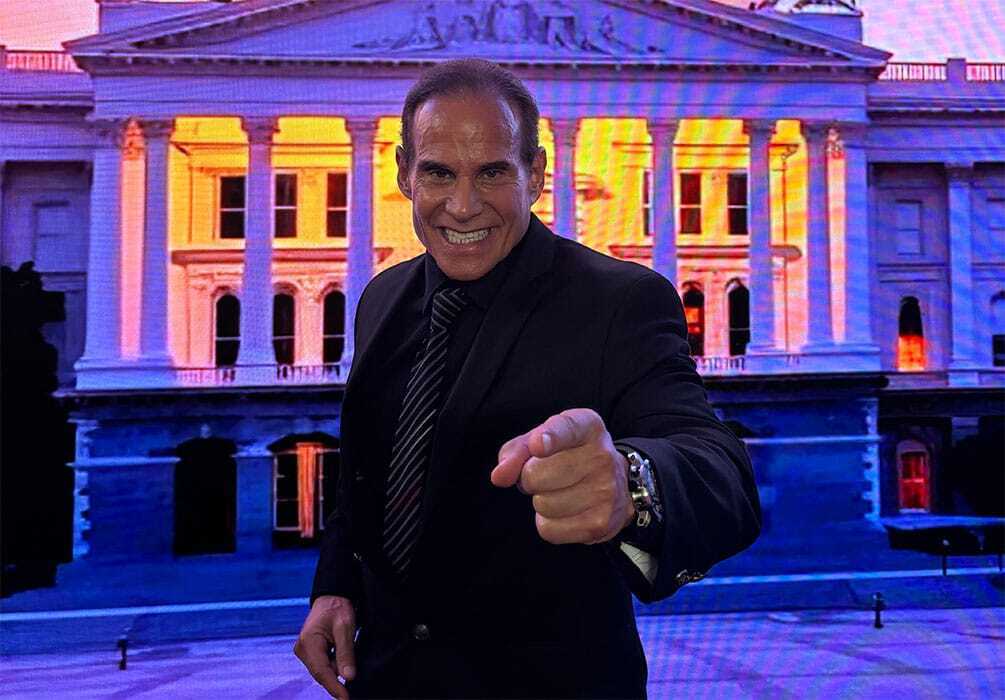
Obesity has quietly become one of the most destabilizing public health issues in the United States, shaping everything from life expectancy to the financial sustainability of the healthcare system. Doctors warn that without significant intervention, the rising tide of weight-related illnesses could eclipse previous generations’ progress in health and longevity. Efforts to counter this trend have been sporadic but now the Trump White House is reviving the long-dormant Presidential fitness initiatives, a symbolic gesture that underscores how deeply childhood fitness connects to the nation’s future.
Enter Mike Torchia: a Beverly Hills fitness trainer who spent four decades turning famous people into better-looking versions of themselves. He’s trained Matt Damon, Al Pacino, Kim Cattrall, Keith Urban, Lionel Richie, Sinbad, and Roseanne Barr—basically a list that reads like the seating chart at a very confusing wedding reception. But instead of cashing out and writing a forgettable memoir, Torchia decided his real mission is convincing children they don’t need to become statistics. His vehicle for this is Shape Up America, a national advocacy campaign that wants to make gym class matter again.
Torchia admits that making actors camera-ready was satisfying, but not existentially relevant. His pivot sounds like the plot twist of a Hallmark movie: the personal trainer realizes that sculpting Hollywood abs doesn’t save humanity, so he turns his attention to kids. He argues that if he could change the behavior of overpaid adults who live on green juice and insecurity, he could probably do something useful with nine-year-olds who still think Capri Sun is a legitimate hydration strategy.
And while this kind of pivot could seem opportunistic, Torchia insists it isn’t—he grew up watching how kids without access to decent food or physical activity were doomed before they hit puberty. That memory metastasized into his mission: make childhood fitness as unavoidable as TikTok.
So what does that even look like? For Torchia, it means gym class every single day, not the half-hearted dodgeball sessions most people remember, but something structured, engaging, and—this is the tricky part—fun. He references the Presidential Fitness Test, which was once a collective humiliation ritual where middle-schoolers tried to do a pull-up in front of their crush. Torchia thinks we can modernize that into something less traumatic: measurable benchmarks in cardio, strength, flexibility, and coordination that make kids feel like they’re leveling up in a video game instead of failing in real life.
And here’s the curveball: he’s weirdly bullish on golf. Not Topgolf, not mini golf with glow-in-the-dark windmills, but the actual game, which he insists teaches patience, focus, discipline, and the ability to remain calm while failing repeatedly in front of strangers. Golf, to Torchia, is the great equalizer: a sport anyone can do badly forever, yet still improve in microscopic increments. That may be the kind of metaphorical framework kids need, since life itself is basically golf without a caddy.
Still, Torchia knows you can’t solve a national crisis with push-ups alone. He’s equally obsessed with mindfulness in schools, which he frames as “PE for the brain.” Think breathing drills between spelling tests, or short meditations before algebra. It’s the kind of thing adults usually scoff at until they realize half their daily stress is self-generated nonsense.
Then there’s the cafeteria problem. School lunches still look like they were designed for prison commissaries in the 1970s. Torchia wants to gut that system: fewer Pop-Tarts, more produce; less corn syrup, more lean protein. He also believes food education is just as important as food access. It’s not enough to tell kids to eat broccoli—they need to know why broccoli isn’t just a green sponge that makes ranch dressing socially acceptable.
Torchia credits his years with celebrities for teaching him that all humans—whether they’re Al Pacino or a seventh-grader in Des Moines—need the same three things: encouragement, accountability, and personalization. The trick is figuring out which lever to pull for which kid. One thrives on competition; another quits forever if they finish second. He sees his job not as enforcing conformity but as engineering confidence. It’s essentially the same formula he used to convince actors to look like Navy SEALs in 90 days, only now the stakes are less about box-office returns and more about the survival of the species.
Which is why he isn’t just talking to parents or schools; he wants a seat on Trump’s Council on Sports, Fitness, and Nutrition. His top agenda item is mandatory daily physical education for all students—something so radical and so obvious it almost feels un-American. If he gets his way, gym class becomes the cornerstone of national health policy, a first-line defense against the medical-industrial complex.
“This is bigger than exercise,” Torchia says. And he’s right. What he’s proposing is less about six-packs and more about reshaping how kids understand themselves. If America is going to get serious about health, it probably won’t come from a pharmaceutical ad or a Peloton influencer—it might just come from a guy who once convinced Matt Damon to stop eating Cheetos.







